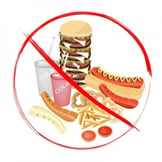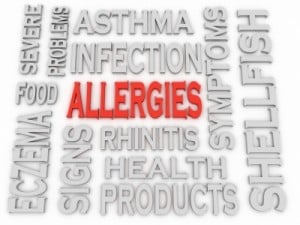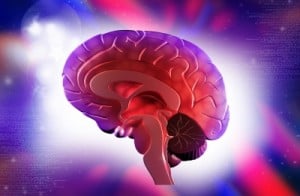In the United States, anxiety disorders are one of the most common mental health illnesses reported with an estimated 3 million people affected each year. Often, poor eating habits and diet can contribute to anxiety. Read this list of five commonly consumed substances that can contribute to anxiety.
 1. Caffeine creates physical effects on the body that can greatly exacerbate anxiety. Some examples include a rapid, pounding heartbeat, sweaty palms, and restlessness. In addition, considering that caffeine is a stimulant, a person’s mood is directly impacted. For many people, the excess energy created by caffeine helps improve focus and attention, yet for those with anxiety, the energy is not utilized the same way.
1. Caffeine creates physical effects on the body that can greatly exacerbate anxiety. Some examples include a rapid, pounding heartbeat, sweaty palms, and restlessness. In addition, considering that caffeine is a stimulant, a person’s mood is directly impacted. For many people, the excess energy created by caffeine helps improve focus and attention, yet for those with anxiety, the energy is not utilized the same way.
 2. Sugar should be avoided if a person has anxiety, because sugar creates changes in the body that trigger anxiety. Glucose and the release of insulin can cause symptoms such as fatigue, brain fog, and a general feeling of being unwell. The spike from a sugar rush and subsequent withdrawal can cause physical symptoms like shaking, nervousness, and restlessness. If a person is already affected by anxiety, consuming sugar can worsen anxiety symptoms.
2. Sugar should be avoided if a person has anxiety, because sugar creates changes in the body that trigger anxiety. Glucose and the release of insulin can cause symptoms such as fatigue, brain fog, and a general feeling of being unwell. The spike from a sugar rush and subsequent withdrawal can cause physical symptoms like shaking, nervousness, and restlessness. If a person is already affected by anxiety, consuming sugar can worsen anxiety symptoms.
 3. Alcohol and anxiety have a known association. Alcohol is a natural depressant that causes symptoms that prohibit proper physical and mental functioning. Because of this, the consumption of alcohol, especially in excessive amounts, can trigger anxiety. Additionally, alcohol becomes addictive in order to soothe feelings caused by withdrawal. Cutting back on alcohol substantially or completely stopping all alcohol consumption is highly recommended for those suffering from anxiety.
3. Alcohol and anxiety have a known association. Alcohol is a natural depressant that causes symptoms that prohibit proper physical and mental functioning. Because of this, the consumption of alcohol, especially in excessive amounts, can trigger anxiety. Additionally, alcohol becomes addictive in order to soothe feelings caused by withdrawal. Cutting back on alcohol substantially or completely stopping all alcohol consumption is highly recommended for those suffering from anxiety.
 4. Fast Food may seem like an easy solution for a quick meal in the midst of a busy schedule. However, the side effects may not be worth it for those suffering from anxiety. Fast food may contain harmful substances such stimulants, preservatives, chemicals, unhealthy fats, and refined sugars. All of these substances create inflammation within the body, exacerbating anxiety. Choosing natural, whole foods may not seem like the quickest way to satisfy hunger, but it is definitely worth it for stable mental health.
4. Fast Food may seem like an easy solution for a quick meal in the midst of a busy schedule. However, the side effects may not be worth it for those suffering from anxiety. Fast food may contain harmful substances such stimulants, preservatives, chemicals, unhealthy fats, and refined sugars. All of these substances create inflammation within the body, exacerbating anxiety. Choosing natural, whole foods may not seem like the quickest way to satisfy hunger, but it is definitely worth it for stable mental health.
 5. Gluten avoidance may seem like the newest trend, but the truth is that gluten sensitivity has been directly linked to mood disruptions, including anxiety and depression. Often times for those who have gluten-sensitivities, the elimination of gluten alone will resolve anxiety issues. Getting tested for food sensitivities is highly recommended in the pursuit of improving mental health.
5. Gluten avoidance may seem like the newest trend, but the truth is that gluten sensitivity has been directly linked to mood disruptions, including anxiety and depression. Often times for those who have gluten-sensitivities, the elimination of gluten alone will resolve anxiety issues. Getting tested for food sensitivities is highly recommended in the pursuit of improving mental health.
First photo courtesy of amenic181 at www.FreeDigitalPhotos.net
Second photo courtesy of Mister GC at www.FreeDigitalPhotos.net
Third photo courtesty of Boaz Yiftach at www.FreeDigitalPhotos.net
Fourth photo courtesy of Iamnee at www.FreeDigitalPhotos.net
Fifth photo courtesy of Vlado at www.FreeDigitalPhotos.net








